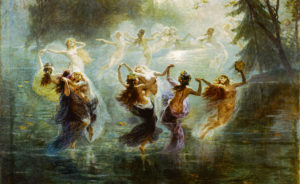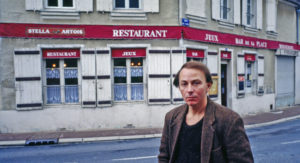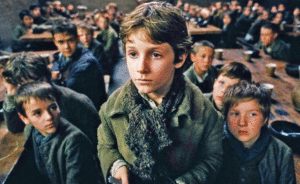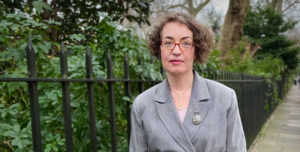Britain’s bestseller lists are usually dominated by rural parish murder mysteries, John Grisham thrillers, and historical fiction set in every age other than our own. Novels that detail contemporary life in unflinching, unsparing detail are missing. The song of our country, as it is now, is not being sung.
Their absence is perhaps understandable. In our age of mass-strikes, cost of living crises, and political turmoil, escapism — even of the murderous kind — seems like an appealing option.
This wasn’t the case in the 19th century, when everyone from Anthony Trollope and Elizabeth Gaskell to Benjamin Disraeli, turned their hand to writing novels which described “the way we live now”: itself the title of Trollope’s 1875 satire of financial scandals. Gaskell’s North and South (1855) is an emotionally febrile exploration of the horrors of industrial England, as the initially naïve and snobbish Margaret Hale is forced to leave the idyllic Helston — a village like “in one of Tennyson’s poems” — and move north. A few mill workers’ riots, some tasteless northern wallpaper and one naval mutiny later, Margaret is morally improved and, perhaps more importantly, engaged.
Disraeli’s novel, Sybil or The Two Nations (1845) is a similar exploration of “the Condition of England”. The poverty of those living in England’s industrial cities is so extreme as to seem to belong to another country. Many of Charles Dickens’s works contain an element of reportage on the same places. Amidst the unstintingly ridiculous character names, putrid fog, and marauding donkeys, Hard Times (1854), David Copperfield (1850), Oliver Twist (1839), and Bleak House (1853) all attempted to reflect Britain back at the British.
Middlemarch (1872), George Eliot’s “study of provincial life”, is the undisputed masterwork of this genre. Through granular examination of the lives of the inhabitants of a middle-England town, Eliot explores everything from medical developments to the status of women in the early 19th century. But its regular appearance on lists of “the best state of the nation novels” leaves me queasy. Is the book intended to be about national change and the passing of the 1832 Reform Act, or is it a universal examination of human psychology?
State of the nation novels have been defined as those that “address social and political changes”. This seems simplistic, even trite: by its nature, a work of fiction inevitably addresses social questions. By that reckoning, Middlemarch is certainly a state of the nation novel, but then so is Douglas Adams’s The Hitchhiker’s Guide to the Galaxy (1979). Eliot, like Adams, toys with “the Answer to the Ultimate Question of Life, the Universe, and Everything”. She gives us a tangled web of human interconnectedness, heartbreak, and failure. The number 42 is conspicuously absent.
Yet some contemporary novelists have taken up the challenge. Amanda Craig has written a sequence of nine interconnected novels all set in contemporary Britain, including 2020’s The Golden Rule. For her, contemporary state of the nation novels are those which, like Middlemarch or any of Dickens’s or Trollope’s offerings, “help us get a grasp of the way we live now”. She acknowledges a scarceness of modern equivalents to the likes of Gaskell and Disraeli, and attributes it to being “bombarded with current affairs by the media”.
The author William Boyd similarly blames the news cycle. “The basic problem is, it seems to me, that time moves on so much more quickly than in the 19th century”. There is a risk for novelists that a “on-the-nail, crucial novel will be irrelevant in three years time”. He uses the example of Justin Cartwright’s 1995 novel In Every Face I Meet. The “central epiphanic metaphor” is a try scored by the former England rugby union captain Will Carling. As Boyd says, “that novel will now require footnotes to make any sense to someone who doesn’t remember the occasion”.
Looming obsolescence was less of an issue for Dickens and Trollope: their works were often serialised prior to publication, in magazines and newspapers which carried news as well as fiction. Rather than writing about the news cycle of politics and contemporary issues, they were practically a part of it.
Thackeray biographer, D. J. Taylor, identifies another issue that faces the would-be state of the nation writer: in the age Thackeray created Vanity Fair (1848), “it was possible for a writer to understand his or her society in a way that isn’t possible now”. They could grasp the political, financial, and class structure of society. Now, “no modern novelist really understands how money works”. It is far harder to describe class signifiers and differences in an age where someone earning a six-figure salary can still call themselves “culturally working class”.
And, many novelists are out of touch with the class-based issues which are at the heart of state of the nation fiction. There are, of course, exceptions — Luan Goldie’s brilliant new novel These Streets is about gentrification and the cost of living in East London; an area the author knows well. But it would be hard for a West London-dwelling, Remainer, Lib Dem-voting novelist to write convincingly about disillusionment and anti-EU sentiment in a former mining town.
The lack of literary fiction that deals with contemporary life is not a recent development. Out of the books which met with acclaim last year, it would be hard to find many which take, as their primary subject matter, the intricacies and relentlessness of modern life.
But it would be facetious to claim there have been no blockbuster state of the nation novels in living memory. In 2012, John Lanchester published Capital: a precisely observed chronicle of London life as the 2008 financial crisis shook the world. The lives of the inhabitants of one road in London — from Polish builders to Senegalese footballers and rich Bankers — are fastidiously explored, and a true portrait of Britain in the 21st century emerges.
Most recently, Ali Smith wrote her Seasonal Quartet in the years following the Brexit referendum. Autumn, Winter, Spring, Summer and this year’s Companion Piece offer a commentary on British lives as they are lived now. While 19th century novelists recorded railway timetables, the price of stamps, and contemporary legal battles, Smith instead revels in descriptions of disembodied heads and an almost ekphrastic dedication to describing art. Her books are about contemporary life — Summer managed to touch on Covid-19 despite only being published a few months after the pandemic began — but, in their radical form and style, they are not so much “state of the nation” novels as they are markers of the “state of literary fiction”.
Neither Lanchester nor Smith’s achievements alter the fact that this is a genre where the tide is going out. What could be the cause of this reluctance to fictionalise the day-to-day lives of normal people?
For Boyd, there is a pragmatic reason: it is risky, and potentially unrewarding, for writers to write about the present. Many novelists — himself included — write about the recent or semi-distant past because “everything is fixed and known”. From The Blue Afternoon (1993) to The Dreams of Bethany Mellmoth (2017), Boyd has written contemporary novels and short stories, but he would “defy any reader to determine what year they’re set in”. He takes “great pains not to make any topical reference so that its contemporary feel can last a decade or maybe two and is generic rather than precise”.
But Craig takes a different approach. The protagonist of her most recent novel, The Golden Rule, is a single mother who cleans homes for a living and continually struggles to make ends meet. But Craig believes that readers are put off by the potential Left-of-centre moralising of a novel which deals with poverty and financial inequality. A state of the nation novel “has to be able to hold a mirror up to some of the big social and personal problems of the day and ask readers what they sympathise with”, but “a strong moral compass hasn’t been fashionable for the past 75 years”.
This difference in opinion marks a subtly different approach from the purpose of contemporary details in fiction. Are they intended to provide a “contemporary feel” — a modern backdrop to the story’s action — or are they a part of the story’s direction, and the reason for it having been written?
With Boyd’s fiction, the answer is clearly the former — and for Craig, as for her Victorian counterparts, the answer is the latter. But for Smith, the answer lies somewhere in the middle of the two: contemporary resonances give her stories momentum and purpose, but her Seasonal Quartet is less fiction that mirrors contemporary life than fiction which mentions contemporary life but retains an element of detachment from it.
This is why these novels have fallen out of fashion. For Dickens, Eliot, Trollope, and Thackeray, literary culture was inextricably linked to everyday life: novels appeared, quite literally, next to news in the pages of periodicals — and often used events from current affairs as potential plot lines. In our day and age, authors, novelists, and the rarefied book world are separate from “normal life”. (Unsurprisingly publishing statistics reveal a dearth of working-class employees in the industry.) We don’t want to read novels about the housing crisis, corrupt politicians, and global turmoil when we can watch it on our television screens. In response, fiction has found a home for itself ever further from day-to-day reality.
But we should not be content with this division of literary culture from everyday existence. Let’s bring back serialised novels in newspapers, books with thinly veiled real-life politicians, and fiction about the minutiae of normal life. It isn’t the issues or politics that readers remember about Victorian state of the nation novels, but the characters.
The Britain they lived in, with its financial scandals and venal celebrities, is not so different from ours. The stories are all still there: a modern day Becky Sharpe in a train strike; a scheming, corrupt Obadiah Slope in the contemporary Church of England; an updated Oliver Twist as a look at the woeful state of children in care; or even Dorothea Brooke as a certain feckless MP’s wife. All we are doing is waiting for talents to tell them.
Disclaimer
Some of the posts we share are controversial and we do not necessarily agree with them in the whole extend. Sometimes we agree with the content or part of it but we do not agree with the narration or language. Nevertheless we find them somehow interesting, valuable and/or informative or we share them, because we strongly believe in freedom of speech, free press and journalism. We strongly encourage you to have a critical approach to all the content, do your own research and analysis to build your own opinion.
We would be glad to have your feedback.
Source: UnHerd Read the original article here: https://unherd.com







